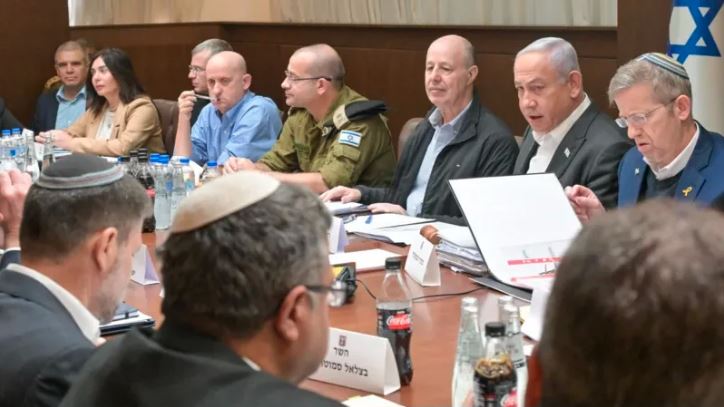After over 460 days of brutal conflict, Israel`s government has finally approved a ceasefire agreement with Hamas in Gaza.
During this time, Israeli forces have tragically killed 46,788 Palestinians and injured over 110,000.
The approval of this ceasefire came from Prime Minister Benjamin Netanyahu’s government, with the announcement made early on Saturday morning.
A statement from Netanyahu`s office confirmed that after intense discussions lasting over six hours, the cabinet decided to back the agreement.
The statement also shared that the government has approved a framework to release prisoners, which is set to begin on Sunday.
Despite some strong objections from hardline ministers in the cabinet, 24 ministers from Netanyahu’s coalition voted in favor of the ceasefire, while eight ministers voted against it, according to reports.
This comes after the Israeli security cabinet voted on Friday to support the ceasefire deal.
Under the terms of the agreement, the ceasefire will initially last for six weeks.
In exchange for the release of Palestinian detainees, Israel will free prisoners held in Gaza.
This deal opens the door to ending the 15-month-long war between Israel and Hamas.
Brett McGurk, the chief negotiator from the U.S., said that the White House is expecting the ceasefire to begin on Sunday morning, with three female prisoners being released in Israel later that afternoon, facilitated by the Red Cross.
On Friday, Israel`s Ministry of Justice published a list of 95 Palestinian prisoners who will be freed on Sunday as part of the initial phase of the deal.
McGurk appeared confident about the deal’s start, saying in a TV interview,
"We have confirmed every detail of this agreement. We are quite confident that it is ready to go into effect on Sunday."
After Sunday’s prisoner release, the plan calls for four more female prisoners to be freed seven days later, and then three prisoners every seven days after that.
As part of the ceasefire, Israeli forces will begin to pull back from certain areas of Gaza.
This will allow hundreds of thousands of Palestinians to return to their homes, which have been destroyed in the conflict.
Despite the ceasefire announcement made by Qatar, Egypt, and the U.S. on Wednesday, Israeli airstrikes on Gaza have continued.
Since then, nearly 120 people have been killed.
If the ceasefire agreement is successfully put into action, it will bring much-needed relief to the people of Gaza, who have been through extreme hardship.
It could also help reduce the ongoing instability in the Middle East.
The Gaza conflict has sparked clashes between Israel and groups backed by Iran, such as Hezbollah and the Houthis, in Lebanon, Yemen, and Iraq.
Humanitarian aid is expected to flow into Gaza soon, as seen by the long lines of trucks seen at the Rafah border crossing in southern Gaza on Friday.
An Egyptian official mentioned that a team from the Israeli military and Shin Bet, Israel’s internal security service, arrived in Cairo on Friday to discuss the reopening of the Rafah border crossing.






-20260220065859.jpeg)
-20260219110716.webp)
-20260219054530.webp)




-20260222063838.webp)







-20260221022942.jpg)
-20260221022827.webp)














